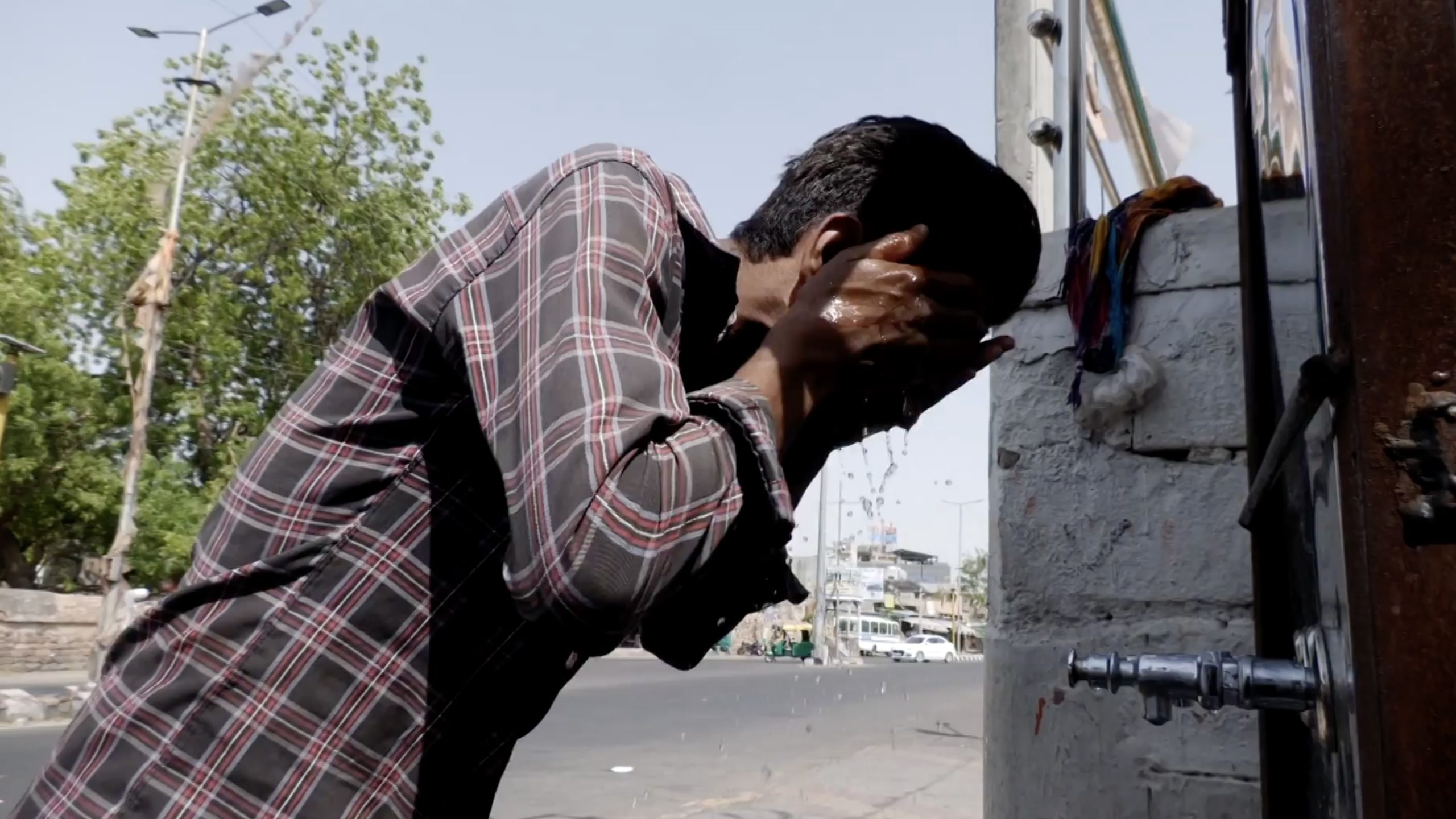On Wednesday, May 29 India’s meteorological department issued a red alert for several parts of the country warning of severe heat waves after temperature reached a record high in the capital New Delhi on Tuesday.
The Indian capital recorded its highest temperature on record of over 50 degrees celsius on Wednesday, a whopping 10 degrees above the normal temperature at this time of the year. On Tuesday it had broken the record of all time high at 49.9 degrees.
The northern and western regions of India have been the hardest hit by the extreme heat, however the entire country has experienced unprecedented record temperatures. Several cities and regions in the northwest of India saw temperatures cross 50 degrees Celsius, such as Churu, Rajasthan which saw 50.5 degrees on Tuesday. It is expected that the unprecedented heat wave will continue in the next few days with low probability of respite despite predictions of isolated rains.
The heat wave is hitting even the hill stations and popular summer retreats such as Kashmir Valley in India where the temperature is about 6 to 7 degrees above normal. In some places, the skyrocketing temperatures are breaking decades-old records.
Similar weather conditions are being registered in neighboring Pakistan. The city of Jacobabad in Sindh recorded a temperature above 52 degrees on Tuesday, with several other places recording temperatures between 51 and 52 degrees. According to Pakistan’s meteorological department, the very hot conditions will continue to prevail in most parts of the country in the coming days affecting mostly Sindh and Punjab.
Temperature is looming above 5 to 8 degrees above normal in most parts of Pakistan since April and as per the estimates of its meteorological department it may reach above 55 degree celsius in the coming days at some places.
According to the Indian meteorological department, a heat wave is when the maximum temperature rises 4.5 degrees above the average temperature. A severe heat wave is defined when the temperature is above 6.5 degrees than usual.
Though heat waves in the region are normal during this part of the year, the frequency and severity of this year are related to effects of the overall climate change, scientists argue. The region has seen a persistent rise in temperature affecting daily life and food production with crops being damaged due to extreme heat or untimely rains.
The heat wave this year has reached areas in the sub-continent which usually do not experience such high temperatures. For example, last month the eastern city of Kolkata in India recorded a record high temperature of 46 degrees, 10 degrees above normal temperature. Several other cities in eastern India are also experiencing abnormally high temperatures.
Impacts on health
Hundreds of people have died in different parts of the region and a large number of people are facing health emergencies due to prevailing heat wave conditions since last month.
In Rajasthan, India, official reports had stated that at least 13 people died due to the extreme heat. However, dozens more have died in this period for “unexplained” reasons, leading many to allege that it is also due to the heat.
Underreporting of the deaths caused by heat is common in the subcontinent. Different reports have estimated that there are over 16,344 suspected heat stroke cases in India since March 1 though the official death count is merely 32.
In Pakistan, hundreds of people have been admitted to hospitals due to heat strokes. On Wednesday in the state of Punjab, at least 72 people were hospitalized for heatstroke.
In several places people are facing severe health emergencies due to the heat. A number of students fainted and were hospitalized in the eastern state of Bihar in India on Wednesday due to the extreme heat.
Heat interrupts daily life
The persistent hot weather has affected the supply of electricity and water in some parts of India including in the capital, New Delhi. Similar cases were recorded in Pakistan as well. The lack of electricity and the irregular supply makes life even more difficult, particularly for the poor living in overcrowded urban areas in the sub-continent.
The Delhi government on Tuesday announced that they would implement water rationing due to insufficient availability of water in the river Yamuna. The water rationing will place further strain on people in the capital, already struggling with the scorching heat.
Fire services in the region are also recording increased instances of fires breaking out across the region.
Due to their inability to provide amenities to face the heat, the governments in most of the northern states in India have announced early summer holidays in schools. On Wednesday, the Delhi government also issued work stoppage notices between 12 PM and 3 PM.
The heatwave is expected to continue across the subcontinent and the lives of thousands are at risk as they cope with decreased access to water and electricity outages amid recording breaking heat.
*This article has been modified following reports released on May 30 stating that the 52.9 degree celsius may have been an outlier.





